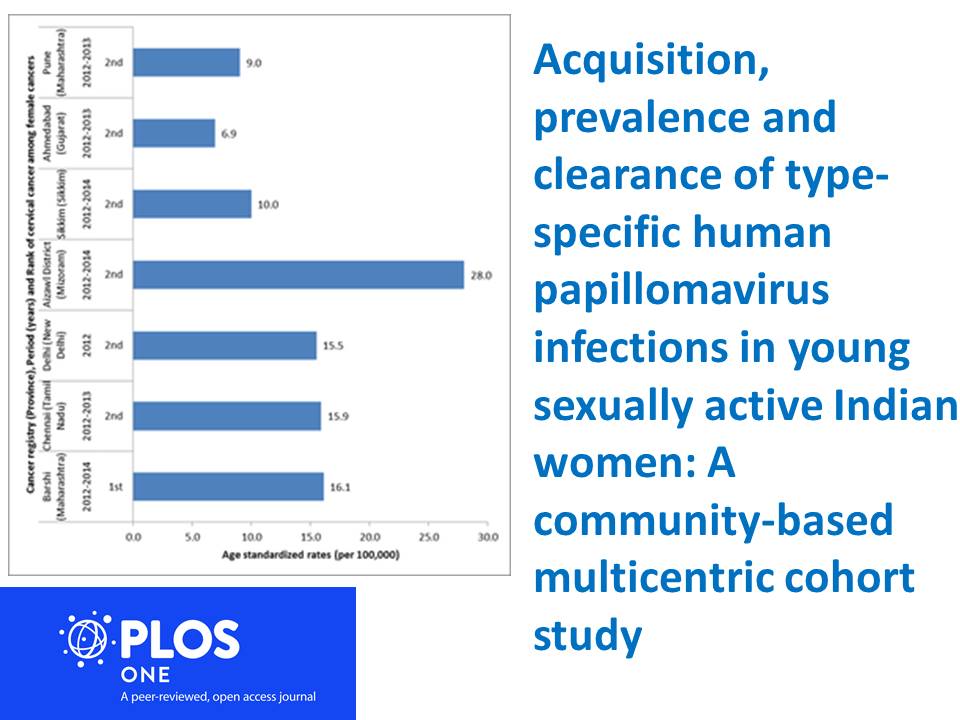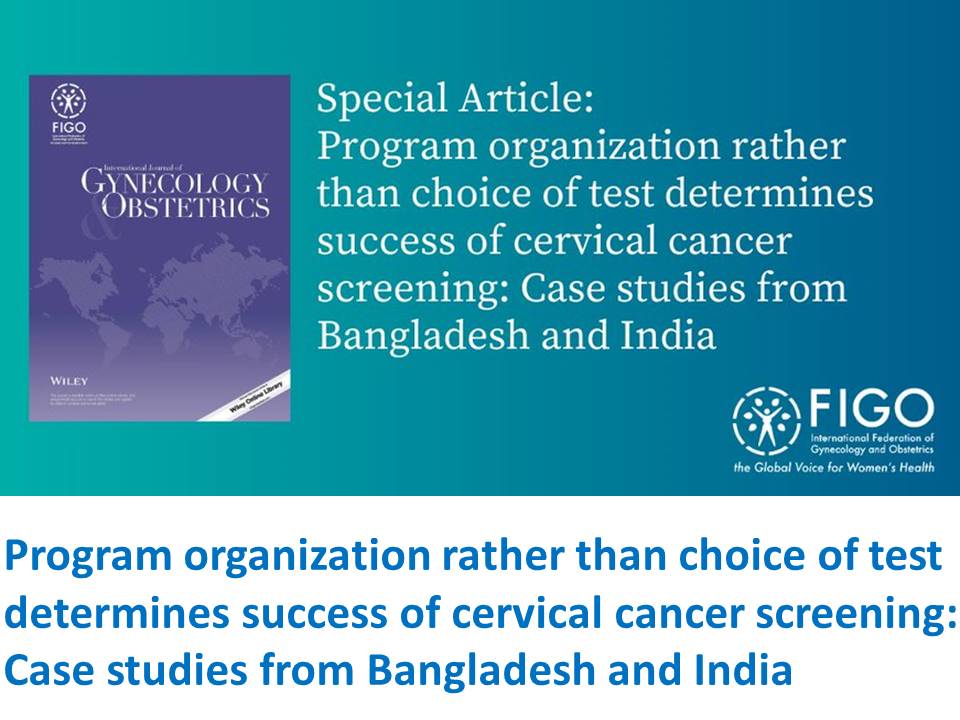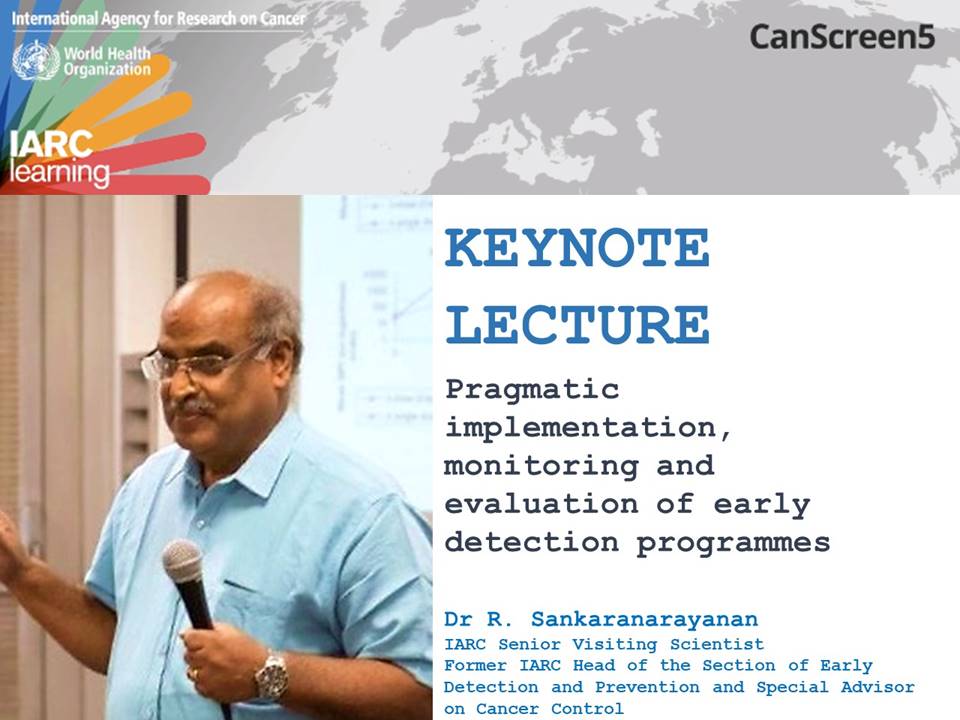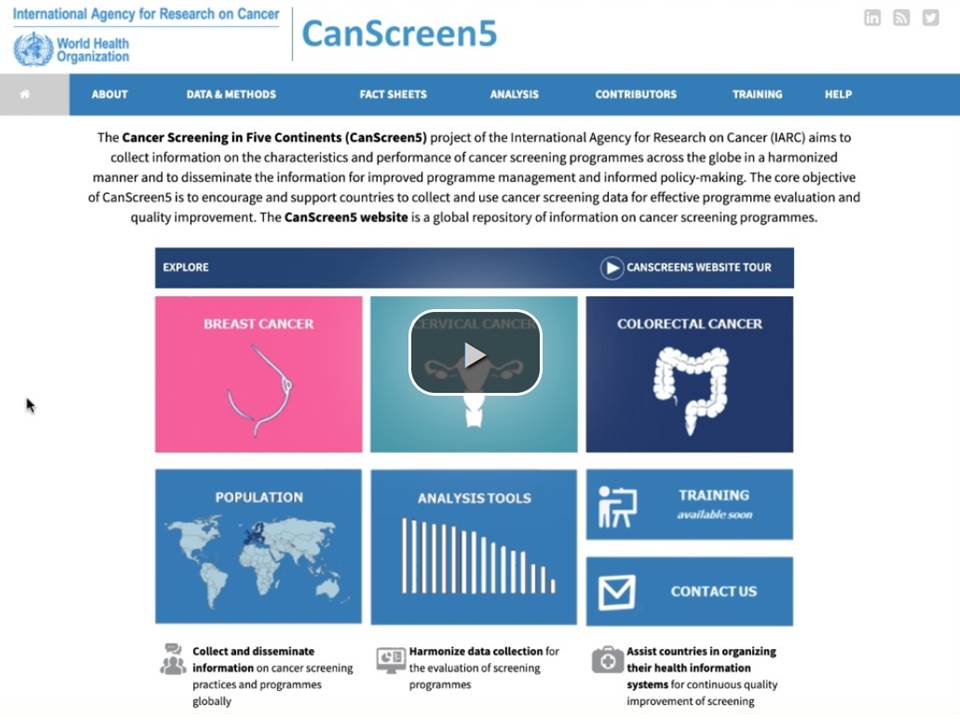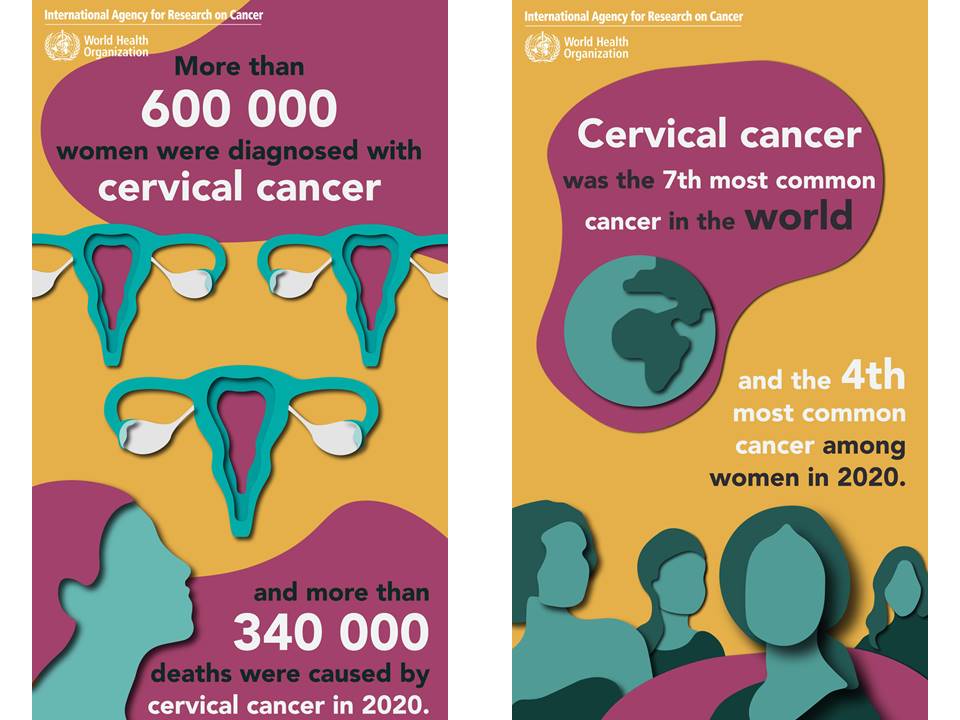Home / About the group / Visitors and news
Visitors and news
New publication: Acquisition, prevalence and clearance of type-specific human papillomavirus infections in young sexually active Indian women: A community-based multicentric cohort study19/01/2021In a new study, scientists from the IARC Screening group and partners in the Indian HPV Vaccine Study Group assessed type-specific prevalence, natural history, and potential determinants of human papillomavirus (HPV) infection in 1484 unvaccinated married women aged 18–23 years. The study was published in the journal PLoS One. This study clearly shows that young Indian women are at high risk of being infected with HPV, especially HPV16, the most oncogenic type. This is a compelling reason for the Government of India to introduce HPV vaccination in the country, which currently accounts for one fifth of the global burden of cervical cancer. View the IARC news and view the article |
New publication: Program organization rather than choice of test determines success of cervical cancer screening: Case studies from Bangladesh and India18/01/2021In this publication, the authors presented the case studies from Bangladesh and India, and highlighted that program organization, rather than the choice of a screening test, determines the success rate of cervical cancer screening. View the article |
New publication: Risk-Based Selection of Individuals for Oral Cancer Screening18/01/2021This publication based on the Kerala Oral Cancer Randomized Controlled Trial conducted by scientists from IARC in collaboration with Regional Cancer Center, Thiruvananthapuram in India and US National Institutes of Health (NIH)/National Cancer Institute, provides proof of principle for resource-efficient, risk-based oral cancer screening through a risk-based reanalysis of the trial outcomes. In the Kerala trial, the efficacy of oral cancer screening was greatest in individuals at highest oral cancer risk. The authors observed that screening 100% of the population would result in a 27% reduction in mortality from oral cancer whereas screening 22% of the population composed of ever-tobacco and/or ever-alcohol users at highest risk would resulted in 20% oral cancer mortality reduction. These results provide proof of principle that risk-based oral cancer screening could substantially enhance the efficiency of screening programs. View the article. |
CanScreen5 Train the Trainers - Africa Region Live session 515/01/2021Continuation of the CanScreen5 Train the Trainers African course, with participants from 17 African countries. The CanScreen5 Train the Trainers course aims to contribute to the creation of a dynamic global network of master trainers capable of training health care providers on cancer screening program monitoring, evaluation and quality improvement and also to contribute data to the CanScreen5 project. Today, Dr R. Sankaranarayanan, IARC Senior Visiting Scientist, Former IARC Head of the Section of Early Detection and Prevention and Special Advisor on Cancer Control, addressed a key not lecture about the pragmatic implementation, monitoring and evaluation of early detection programmes. Learn more about the CanScreen5 platform. |
Virtual meeting: Cancer screening webinar14/01/2021Dr Partha Basu, Head of Screening Group, Early Detection & Prevention Section at the International Agency for Research on Cancer participated to this Cancer screening webinar organized by Innovative partnership for action against cancer (IPAAC) co-funded by the Health Programme of the European Union. He discussed about Cancer screening in Europe - shifting paradigms. |
Video: CanScreen5 website tour11/01/2021In this new tutorial video, we are delighted to present the Cancer Screening in Five continents (CanScreen5) platform. View the CanScreen5 platform and the website tour video. |
New publication: Acquisition, prevalence and clearance of type-specific human papillomavirus infections in young sexually active Indian women: A community-based multicentric cohort study08/01/2021In this study, the authors systematically evaluated the prevalence and natural history of HPV infection over a median period of nearly 4 years in a young sexually active cohort of women. More than one third of the women were infected over time with any of the 21 HPV types; HPV 16 being most frequently detected followed by HPV 31, 58 and 56 in that order. Over 90% of the infected women cleared the infection by 36 months irrespective of the HPV type. The clearance rate was significantly higher in the initial months of infection–a phenomenon well-documented by previous studies. This might also partly explain why women with a 2–3 year gap between marriage and first cervical cell collection had a reduced risk of HPV infection as they may have had time to clear the infection. Our study clearly shows that the Indian women are at high risk of being infected with HPV, especially HPV types 16 and 18. View the article |
January is cervical cancer awareness month!06/01/2021Throughout January, the International Agency for Research on Cancer (IARC) will mark Cervical Cancer Awareness Month with a series of posts, including tweets, interviews, and infographics. Stay tuned to the IARC website, www.iarc.fr, the IARC Twitter account, @IARCWHO, and the IARC YouTube channel, IARC WHO, during January to learn more about cervical cancer and the worldwide initiative to eliminate this disease as a public health problem. Read the IARC news |
New correspondance: Confusion over cervical cancer screening needs to be resolved once and for all12/12/2020Dr Walter Prendiville, senior visiting scientist in the Screening Group at the International Agency for Research on Cancer published this opinion article in The Irish Times Journal, and discussed about the Irish cervical smear screening programme, "CervicalCheck", which came under intense scrutiny as the accuracy of hundreds of "negative" results were brought in question.
View the publication. |
CanScreen5 Train the Trainers - Africa Region Live session11/12/2020Continuation of the CanScreen5 Train the Trainers African course, with participants from 17 African countries. The CanScreen5 project is designed to be an instrument to improve the quality of cancer screening programmes by providing training and critical feedback regarding data analysis to the collaborators. We expect that, through capacity building, collaborators will gain knowledge on implementing, monitoring, evaluation and improving the quality of cancer screening; and that by analyzing their own data they will gain insights on how to propose improvements to the programme. Today the course participants followed a live demonstration conducted by Eric Lucas about CanScreen5 data submission. Learn more about the CanScreen5 platform. |




